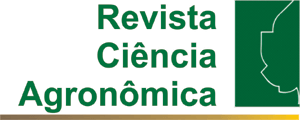ABSTRACT
The management of water resources in irrigated agriculture is a basic method of guaranteeing water use efficiency in agricultural crops. The aim of this study was to evaluate production and water productivity in the marigold under different soil-water matric potentials and at different stages of development. The experiment was conducted in pots in a protected environment. The experimental design was of randomised blocks with six treatments (-10, -15, -30, -40, -50 and -60 kPa) and 4 replications, giving a total of 24 experimental units for each individual trial, which were represented by the development stage of the marigold. Tensiometers were used to monitor the matric potential of the soil, with readings taken daily. The production and dry weight of the floral capitula were evaluated together with water productivity. The data were submitted to regression analysis. It was found that the variations in irrigation depth throughout the growth cycle and during the reproductive phase of the marigold gave significant results for the variables under analysis. For the complete cycle, the production of floral capitula was seen to be greater at a matric potential of -10 kPa, a higher value than the pressure at field capacity (-30 kPa). However, the greatest water productivity was obtained at a matric potential of -32.74 kPa.
Keywords:
Medicinal plant; Marigold officinalis L; Water requirement; Water deficit; Water productivity

 Thumbnail
Thumbnail
 Thumbnail
Thumbnail
 Thumbnail
Thumbnail


